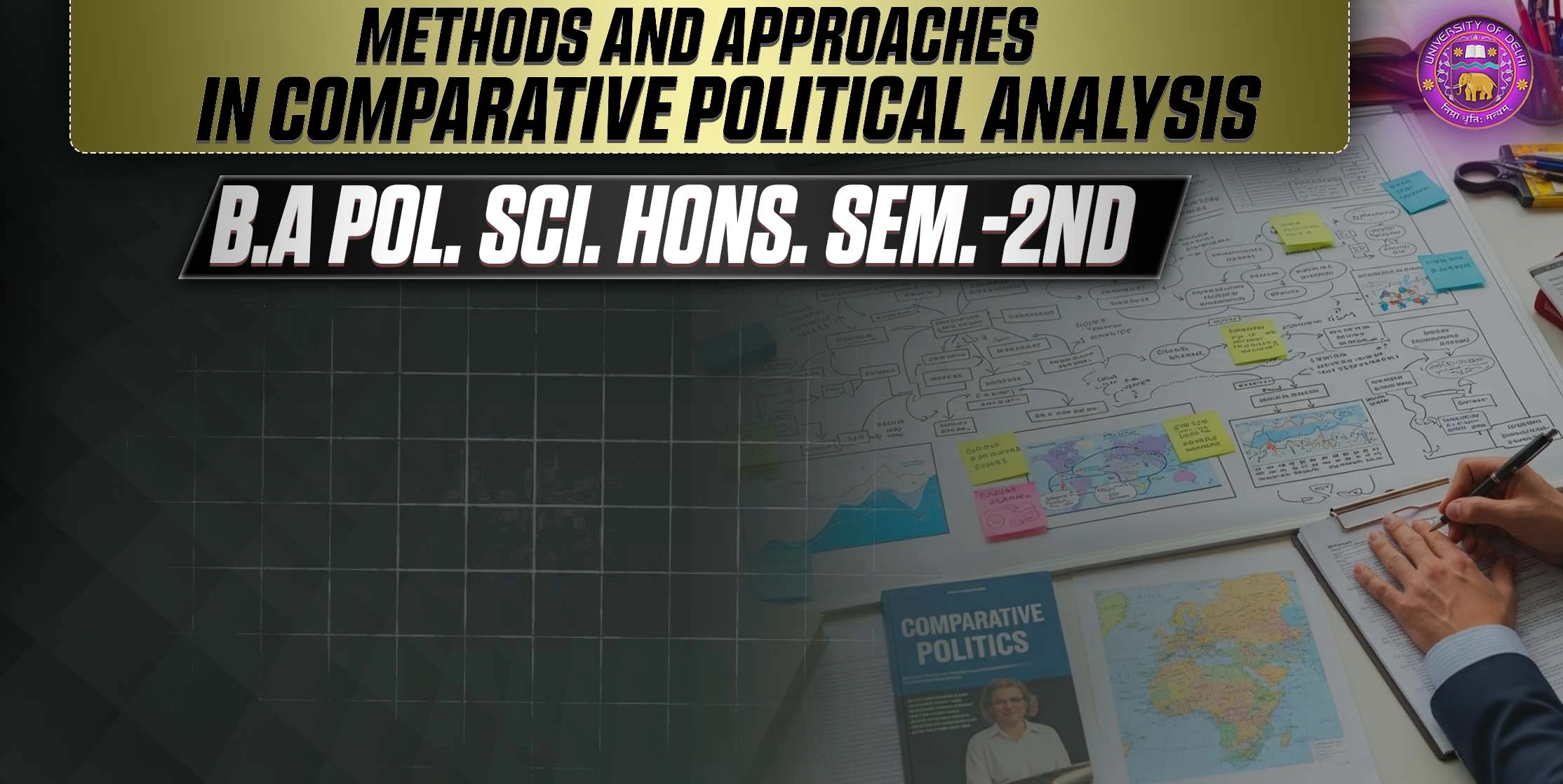
Get in Touch
We will get back to you within 24 hours.
Welcome to MVS Blog

OR
Discuss the nature and scope of comparative politics.
Answer - INTRODUCTION
Comparative politics is a branch and method of political science which is based on comparative study. In comparative politics, the political system of two or more countries is compared or the politics of different times of the same country is compared and it is seen what is the similarity and what is the difference.
Aristotle :- Aristotle is called the father of comparative politics. First of all, scientific approach towards politics was adopted by Aristotle. Aristotle, in his great treatise 'Politics', first resorted to the comparative method. At the same time, Aristotle also studied the constitutions of 158 countries.
DIFFERENT DEFINITIONS OF COMPRATIVE POLITICS :-
According to Edward Freeman, Comparative politics is a comparative analysis and discussion of various types of political institutions and governments.
According to Rolf Bribanti, "Comparative politics is the explanation of those elements in the entire social system that influence political actions and their institutional manifestation."
According to S. Curtis, Comparative politics deals with important regularities, similarities and dissimilarities in the functioning of political institutions and political behaviour.
NATURE OF COMPARATIVE POLITICS:
1. Comparative politics as a longitudinal comparison: According to the supporters of this idea, comparative politics is the comparative analysis and study of different governments located in the same country and the political practices affecting them.
Each state has several levels of government – national government, state government and local government. According to this point of view, comparative politics is concerned with the comparison of various governments – national, provincial and local – located in a country of this type. Politics is a longitudinal comparison of different governments of the same country.

2. Horizontal nature of comparative politics: According to the thinkers who believe in this view, comparative politics is the horizontal comparative study of national governments. According to this concept, the comparison can be done in two ways, firstly, the national government existing in the same country can be compared on the basis of different periods and secondly, the national governments existing in the world can be compared.
The comparative analysis of present political institutions, processes and political practices can be done only in the context of the past. For example, in the context of India, this comparison can be made between the national governments of ancient India, medieval India, the governments of British India and the national governments of modern independent India.
Similarly the national governments of independent India can be compared with reference to different aspects of the same reign. For example, Nehru period (1942-1964) or Indira Gandhi (1966-1977) and (1980-1984).

FIELD OF COMPARATIVE POLITICS:
The field of comparative politics has been controversial. The main reason for this is that there is no match between its traditional and modern approaches. Old political thinkers used to limit their study area only to the structure of governance and government whereas modern scholars make its area very wide. The subject area of comparative politics is as follows: -
1. Study of political socialization
Political socialization is an important study of comparative politics. Political socialization is a process by which one acquires information about political values and attitudes. Political socialization is a long term process. It starts from the life of a person and continues till his death. A person starts taking interest in various political subjects from his childhood and remains connected to it till his life.
Political socialization is included in comparative politics because the success or failure of a political system depends on political socialization. Often the process of political socialization is rapid in developed countries. On the contrary, this process is very slow in backward and developing countries.
2. Study of political culture
By political culture is meant the attitude, beliefs, feelings and values of the citizens of a political system towards that system. Each political system has its own distinct political culture. Political culture itself explains how much importance people attach to the political system. In fact, the success or failure of any political system depends on the political culture. Therefore, political culture is studied in comparative political studies.
3. Institutional Broad Description of Different States
The traditional scholars of comparative politics considered the legislature, the executive, the judiciary and the bureaucracy as the subject matter of politics. Although nowadays more emphasis is given on methodology and practical side instead of institutions, yet the political structure cannot be left out at all. It is generally believed that the power of the Parliament to take the final decision is decreasing day by day and this power has come into the hands of the executive. To arrive at the conclusions of this government, it is necessary that we study the executive and legislatures of as many countries as possible.
4. Political elites, political violence and political corruption
Scholars of comparative politics also study the people who exercise state power, which sections of the society they belong to and what is the basis of their power. In every state, the power of governance is in the hands of some specific people or a specific class. In countries where there is a healthy party system, political parties are the main source of recruitment of teachers.
Economic inequality and the method of recruitment of political rulers are closely related to political violence and internal strife. In the words of Chrisis and Ward, "In countries where certain sections of society are diligently denied 'political power', these sections try to seize power by violent means."
CONCLUSION
Through comparative political analysis, we can find solutions to the present problems by deeply studying the institutions of a particular country. In the present times, it has become extremely necessary to determine the general rules regarding the political system and behavior in the welfare state.
0 Response